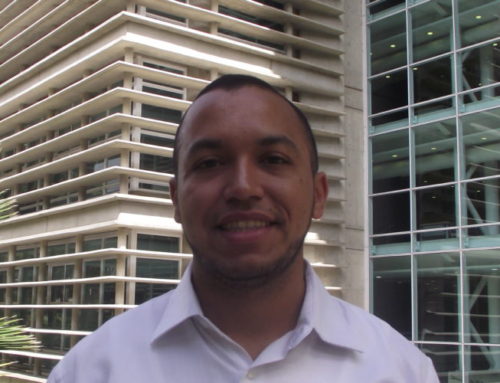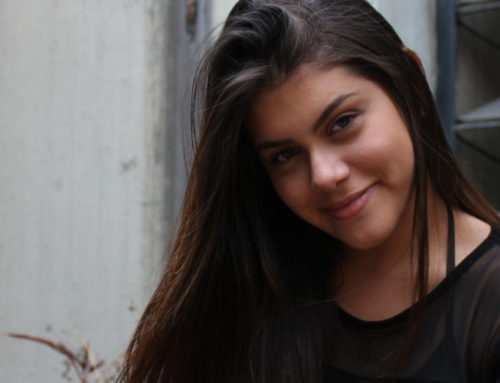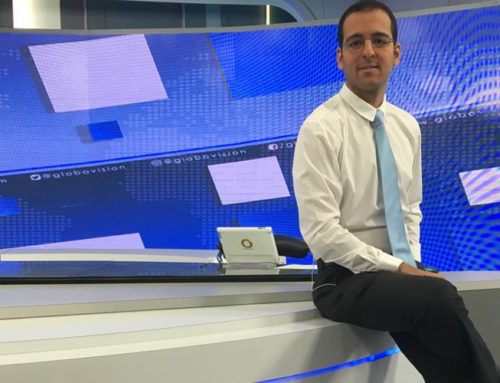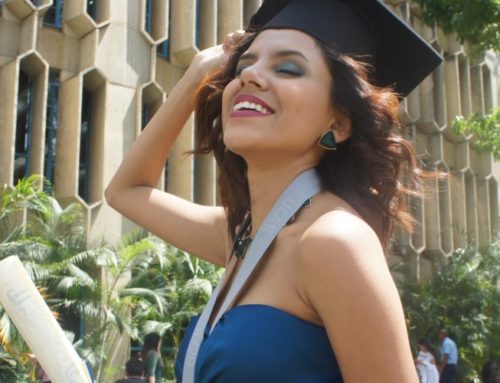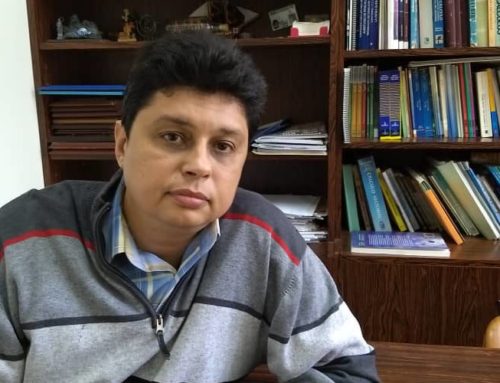Astrid Johana García Espinel is a 25-year-old Venezuelan young woman who graduated in January 2016 in Mass Communication, with a specialization in Journalism, at the Universidad Católica Andrés Bello (UCAB). Astrid is now working at the Inter- American Development Bank in Washington DC, United States.
During her childhood, Astrid had no contact with her father, as a matter of fact, she grows up surrounded only by women: her aunt, two female cousins, her mom and her sister; and until 2010, she lived in the highest, most distant zone, of the La Vega parish.
At six I started distinguishing between the sound of fireworks and the sound of a bullet. The best hiding place, whenever there was a clash, was always under the bed.
Fortunately, in the García’s house the bullets never entered, only raindrops soaked through the old ceiling.
My mom told me that with the arrival of the new president, this situation would soon change, and indeed it did. Over the years, the sector became more dangerous and I saw how my neighbors’ children decided to take guns, instead of books. – Astrid García to El Ucabista, 139 edition, March 2016.
In her third year of high school Astrid begun to study at “E.U. Fe y Alegría Andy Aparicio”, an institution built hand in hand with representatives of the Society of Jesus.
“Fe y Alegría Andy Aparicio” school distinguishes for having an education which is centered in and around the computing area and, just a year before, I had became aware that such thing as internet existed”.
The next year, Astrid started to feel more attracted towards the fields of diplomacy, history and international organizations; thanks to her participation in the UCABMUN Program, from the Fundación Embajadores Comunitarios (FEC), which at that moment was a community service project of UCAB’s Law and Mass Communication schools. It is at that moment that she started to feel part of UCAB, an UCABISTA.
In 2008, when she was 15 years old, a group of students from UCAB did their community service in my school, creating the UCABMUN program, and taking the United Nations Models to the popular zones.
They trained us on Saturdays, in the university spaces. And this formation helped us level up with the education in private schools.
The results of the competitions were quite interesting because we used to win the most important awards in our delegation, even though we belonged to lower social strata.
However, The Garcías couldn’t pay for her university studies, so she decided to apply for a scholarship, but her papers were mislaid in the filing cabinet of a worker that emigrated. Tanks to the persistence of young ucabista Katherina Hruskovec, Astrid tries to enter to UCAB’s scholarship program again and manages to get 100% of financial support.
Astrid had a scholarship for her five (5) years as a Mass Communication student. In the first two semesters, she had a 100% scholarship awarded by Graduates Association of the university. However, by government decision, the scholarship was modified and it became financing. Likewise, this financing was paid by one person that had decided to grant Astrid with a scholarship throughout all her university studies.
In her first year at the university (2010), the whole country was affected by strong rains, and one of the most affected zones was the parish of La Vega, the place where Astrid lived.
The half-built house now was a home about to collapse, so we look for support in my old school Fe y Alegría, which had suspended its activities to become a collection centre. Some nights, the classroom, where one day I took classes, was actually my room. My classmates were no longer the people with whom I used to study with but other families with whom privacy had become a collective term.
One day we had to gather up our things and wait long hours to be moved to a “worthier” refuge, as public officials would call it. In a bus, where each family had to take with them the essential belongings, we arrived at the Torre El Chorro in the Avenida Universidad.
After living in a “Misión Vivienda” in Charallave, Miranda state, where the living conditions were less than optimum, the García moved into a house in the centre of Caracas, that fitted more to their needs.
I always was part of FEC in one way or another.
When FEC became a foundation, Astrid went from delegated to trainer to coordinator and finally, she worked in the foundation’s Communication Management department.
During my first year in the university, I didn’t join the Model United Nation traditional programs, as WorldMun, HNMUN, LAMUN, etc.
In 2011, the participants of UCABMUN program, from La Vega, San Agustín and Antímano, went to compete in the United Nation Dominican Model Conference in New York (NYDRMUN). This experience was incredible because we were in the room of the General Assembly of the United Nations (UN).
Is incredible to see how, through the education, you get opportunities to things that you believed impossible to achieve. It even gives us new friends.
This taught me that no matter where you come from, all is possible if you put your mind to it because the differences only adds up. All that we should do is prepare and educate ourselves and then give this back to our country.
From La Vega to Washington
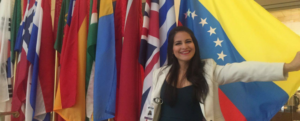
At the end of her academic load, as she was waiting for her degree, Astrid applied to a winter internship program at the Inter American Development Bank and she got in.
It was because of the university prestige, to the social experience that I had, and to my professional profile that I was accepted in the bank for internships, with a duration period of two (2) month. However, after the third week at work, they offered me a permanent employment.
And then two months have become two years.


